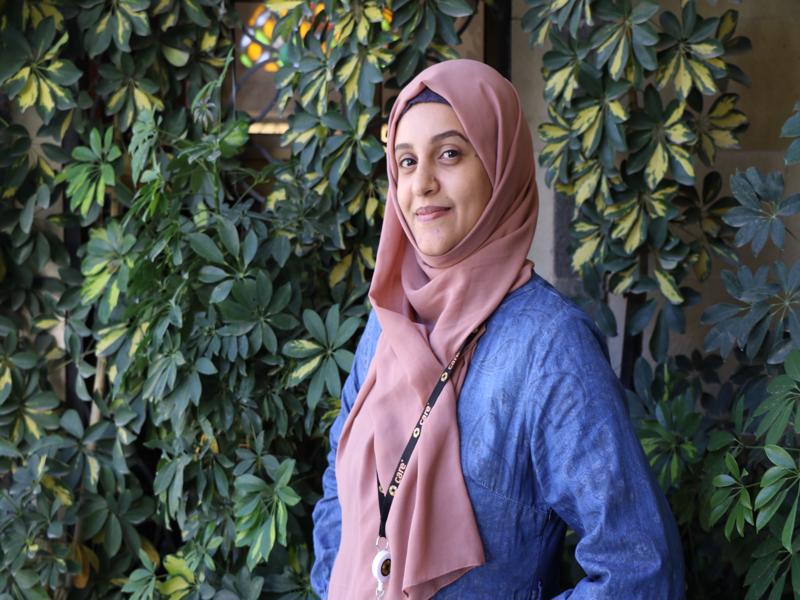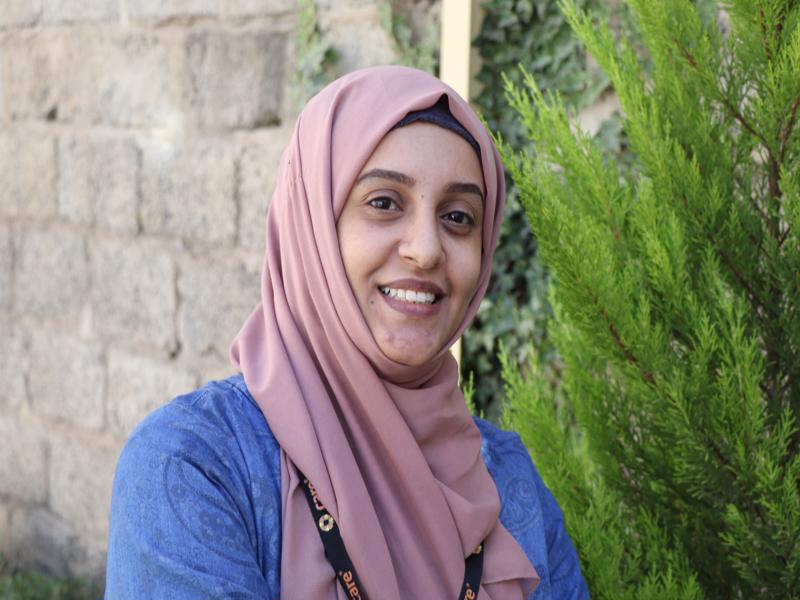To mark the end of a difficult year, I woke up early this Friday to write my annual gratitude list. Since I was a child I’ve had a tradition of writing a list of what I’m most thankful for in the year. But as the years have passed and the conflict in my home country Yemen has lengthened, my gratitude list has become shorter and more precious.
The war that erupted in 2015 has affected all families across Yemen. Year on year, the impact of the war on Yemenis’ lives becomes more and more visible. By the end of this year, more than 24 million Yemeni people – nearly 80 percent of the entire population – need some form of humanitarian aid and protection.
The idea of being thankful while living amidst the world’s worst humanitarian crisis – as the UN describes it – seems like an impossible task. However, I start writing my gratitude list with the most remarkable thing that happened to me this year. At the beginning of 2020, I joined CARE Yemen as a communications officer, which gave me a great chance to communicate my people’s hopes and fears. Through my work, I have come across many inspiring stories that embody the unparalleled strength and resilience of the Yemeni people.
Our daily life is a struggle for survival
As the conflict continues, people’s access to basic services has dramatically reduced. Due to the collapse of public health, water and sanitation infrastructure, people in Yemen – especially children – suffer from preventable diseases and malnutrition. Nothing was more heartbreaking for me than receiving the tragic stories of pregnant mothers who experience birth complications, and sometimes death, due to the unpaved roads and the lack of nearby health centres.
The escalation of fighting, as well as the unprecedented torrential rains and flooding that hit the country multiple times during this year, has further exacerbated the existing vulnerability of Yemeni families, particularly in displacement sites. And on top of all existing hardships, deadly COVID-19 has been present in the country since April. I still recall 30-year-old Saleh, a displaced person from Minin Al Hadd camp in Marib governorate, saying: “People don’t have water and soap and they can’t stay at home because they need to work and provide for their families regardless of the virus.”
Walking around Sana’a city, the capital of Yemen, life looks normal. Restaurants and markets are open, and you can barely see people wearing masks. Fuel queues are a normal sight in the city; during this year, fuel was a key factor in planning how I would spend my day. I used to queue from the early morning, hoping that the station wouldn’t run out of petrol before I reached it. The fuel crisis, combined with the economic crisis and Yemeni currency depreciation, increased Yemenis’ struggle to secure their most basic of needs.

